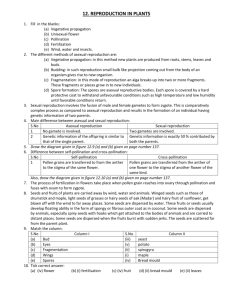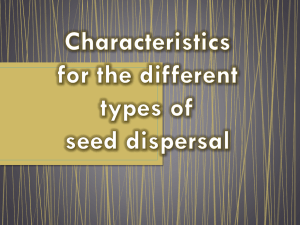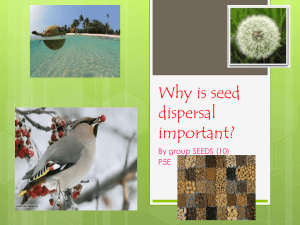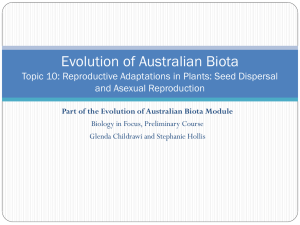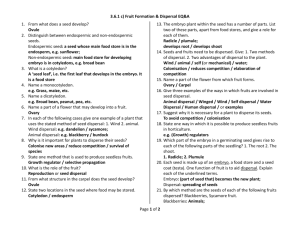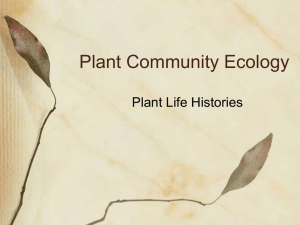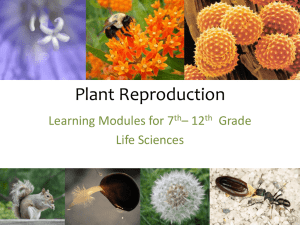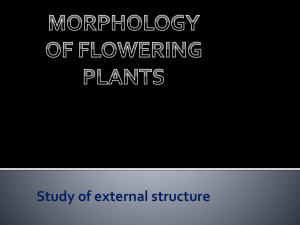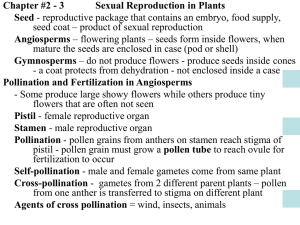Seeds _13_3__ Day 2
advertisement
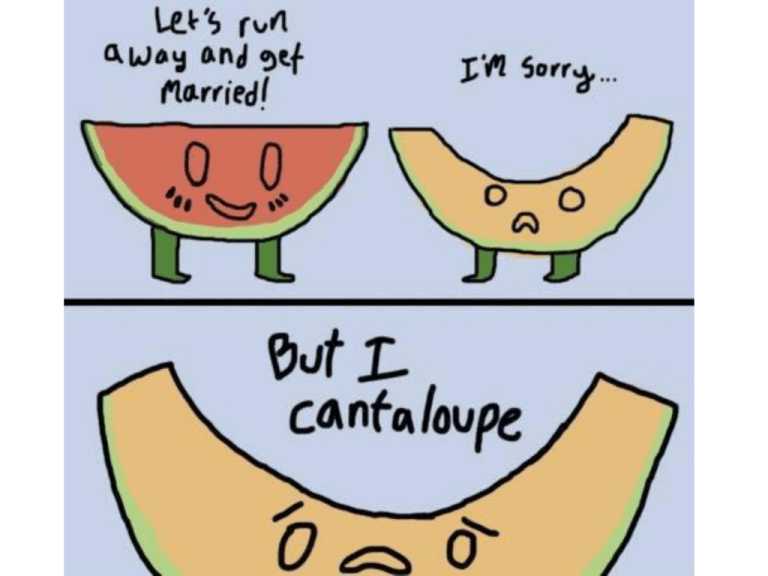
Announcements • Test corrections end Monday • Turn in any missing assignments Question of the Day Question: What are some ways that you plan to study for your final? Ideas? Answer: … … … Lab 13.3: Fruits, Nuts, & Seeds Fruit: Matured Ovary • Fruit- matured ovary and other floral parts; used to be a flower 1 flower, 1 ovary 1 flower, many ovaries Nut: Matured Ovary • Nut- matured ovary and other floral parts with hard shell; used to be a flower Seed Dispersal • Dispersal: movement away from an existing population • Animals – Birds: reliant on color when finding food – Mammals: seeds pass through digestive system, may contain laxative – Insects: have excellent senses of smell or color vision or both Seed Dispersal • Wind – Usually light (low density) & aerodynamic – May have wings • Water – For plants that grow in or near large bodies of water (eg. coconut) – Low density: float – Must be somewhat waterproof p. 707 A.Q. 1ab, 2ab, 3abc p. 707 A.Q. 1ab, 2ab, 3abc 1a. Describe how fruits form. 1a. Fruits form as seeds mature and ovary walls thicken. The mature ovary is the fruit. 1b. Is a pumpkin a fruit? Describe any evidence you use in making your inference. 1b. A pumpkin is a fruit. A pumpkin forms the ovary of a flower and it has seeds inside. p. 707 A.Q. 1ab, 2ab, 3abc 2a. Describe two methods of seed dispersal. 2a. Methods of seed dispersal include movement of seeds by animals, wind, and water. 2b. A new angiosperm species is discovered. What questions would you ask before predicting how its seeds are dispersed? Explain the rationale for asking each question. 2b. Your response here! Example: Is the fruit fleshly? If yes, then it will probably be eaten by animals. Are the fruits dry, light weight, or buoyant? If yes, they may be dispersed by wind or water. p. 707 A.Q. 1ab, 2ab, 3abc 3a. Summarize the environmental factors that affect seed germination. 3a. Temperature and moisture affect seed germination. 3b. Why is it adaptive for some seeds to remain dormant before they germinate? 3b. Dormancy enables a seed to survive until environmental conditions become favorable. Dormancy may also allow for long-distance dispersal. 3c. The seeds of a bishop pine germinate only after exposure to the extreme heat of a forest fire. Evaluate the significance of this structural adaptation. 3c. Since most of the trees in the forest will be destroyed by the fire, this adaption decreases competition for resources, thus creating a favorable environment. It also helps ensure that the species will survive fires. p. 278 A.Q. 2abc p. 278 A.Q. 2abc 2a. What is asexual reproduction? What is sexual reproduction? 2a. Asexual reproduction is the production of offspring from only one parent. Sexual reproduction is the production of offspring from two parents. Kalanchoe Plant: Asexual Reproduction 2b. What types of organisms reproduce sexually? 2b. Most animals and plants reproduce sexually, as do some single-celled organisms. p. 278 A.Q. 2abc 2c. What are the advantages and disadvantages of both asexual and sexual reproduction? 2c. Asexual reproduction occurs rapidly, enabling a population to increase rapidly. However, the offspring of asexual reproduction are genetically identical and may not survive a change in the environment. Sexual reproduction takes longer, so a population does not grow as fast. However, the offspring of sexual reproduction have a mix of genetic material from the two parents that might help the population survive if the environment changes. Pollen Dispersal • Animals – pollen is usually barbed or sticky – Mammals, birds, insects (bees, flies, etc.) • Wind – pollen is usually light & aerodynamic • Water – for plants that grow underwater Unit 5 Vocabulary 24. fertilization- the joining of sperm and egg 16. pollen tube- grows towards egg & contains two sperm nuclei Unit 5 Vocabulary 22. seed- plant embryo and food supply enclosed together in a protective seed coat 21. endosperm- energy-rich tissue that nourishes a seedling as it grows 23. fruit- energy-rich tissue that contains one or more seeds
